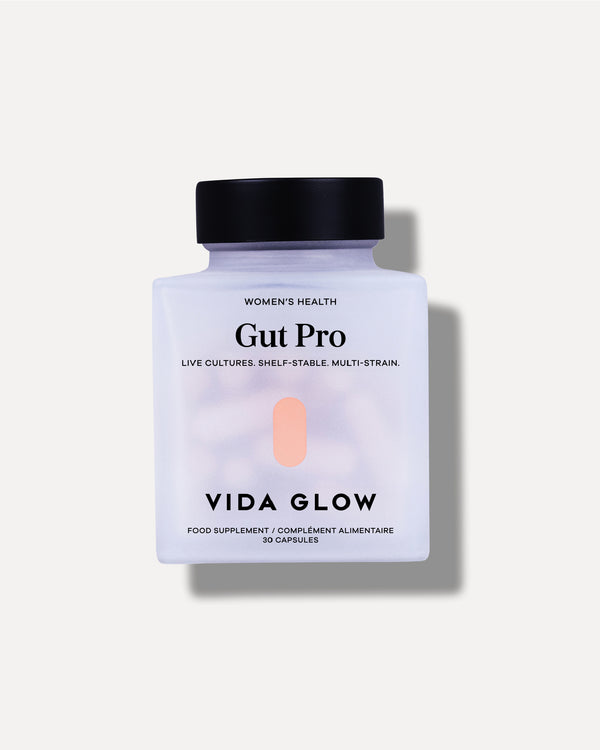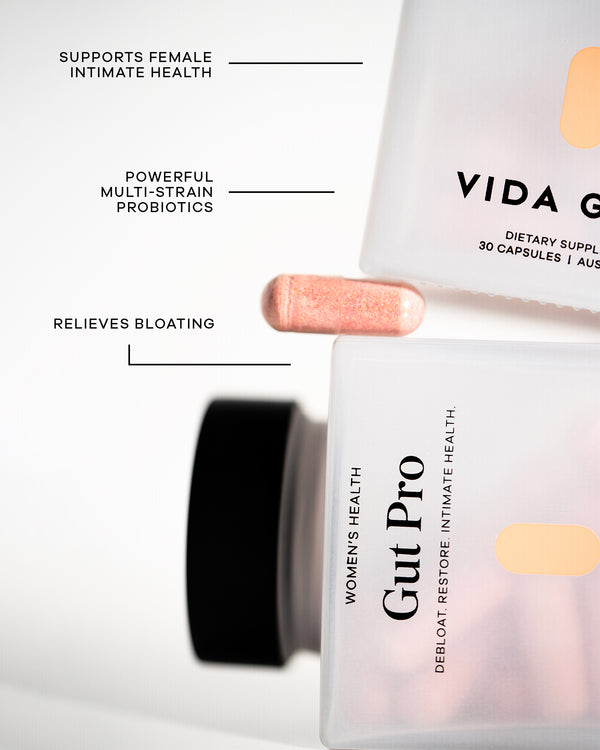The Gut-Brain Axis: How Your Gut Health Impacts Your Mental Health

The Gut-Brain Axis: How Your Gut Health Impacts Your Mental Health
The gut-brain axis refers to the direct line of communication between your gut and your brain. Find out how a healthy gut may benefit your mental health.
We are learning more and more about the gut every single day and the role it plays in our overall health and wellbeing. From digestive health to immunity and even the appearance of our skin, the gut plays a pivotal role in maintaining balance in the body. On the surface, it might seem quite farfetched to think that our gut could have any influence whatsoever over our mood and mental health, but this couldn’t be further from the truth!
There is direct, bidirectional communication between the gut and the brain via the vagal nerve, aptly termed the gut-brain axis. The vagal nerve sends information about our inner organs directly to the brain. It’s also associated with our capacity to deal with stress and is positively regulated through the breath in practices like meditation and yoga. When this pathway is not working properly this can predispose us to different mood and anxiety disorders.
Importantly, the vagal nerve is not the only piece of the puzzle. The diversity, quality and balance of our gut microbiome also has a huge impact.
We hear this term a lot, but what exactly is the gut microbiome? It’s crucial to understand this to appreciate how it has the power to impact our mental health, so let’s take a closer look at the brain-gut connection.
What is the gut microbiome?
Did you know that we have trillions and trillions of microorganisms residing in our gut microbiome at any one time? In fact, we have as many microbial cells as we do human cells. Which begs the question, who is controlling who? The gut microbiome is a vast and complex ecosystem which performs a host of vital functions that are imperative for health. Gut bacteria governs digestion, absorption of food and is even in charge of producing certain nutrients too. A large part of our immune system resides in the gut microbiome, neurotransmitters like serotonin and hormones are also produced there. So, you can imagine, when our gut bacteria are out of balance, this can cause widespread havoc in the body!
Factors like a change in diet or food allergies, long-term stress, infection (like food poisoning or gastro) or certain medications (particularly antibiotics) all act as stressors that can disrupt the delicate balance of the gut bacteria in the gut microbiome. This imbalance is called dysbiosis. Dysbiosis in the gut microbiome can cause low-grade inflammation and cause the intestinal lining to become more permeable, or ‘leaky.’ The job of the intestinal lining is to act like a barrier, however, when this is impaired, molecules and bacteria that shouldn’t be able to pass through can now enter the bloodstream. Consequently, this sparks an immune response leading to systemic inflammation throughout the body, including the brain.
The impact of gut bacteria on mental health
You can think of the gut like a second brain. Research has shown that dysbiosis and inflammation of the gut are closely linked to low mood, brain fog and several mental health disorders like anxiety and depression. Disruptions in gut bacteria negatively affects levels of stress and anxiety. Inflammation that starts in the gut makes its way to the brain and we know that neuroinflammation is at the heart of many of these conditions. Further, studies show that there is a positive correlation between markers of gut dysbiosis and the severity of illness.
So, what can we do to bring our gut microbiome back into balance and optimise our mind-gut connection?


Using probiotics to support happy hormones and gut health
If you are looking for ways to improve your mental health, let’s start with the basics. Modifying your diet to include more polyphenols, fibre, and anti-inflammatory foods, managing stress, incorporating breathwork, moving your body daily and sleeping well are demonstrated ways to quickly improve your mental wellbeing. However, if you need some additional support, then probiotics might help! Probiotics are live microorganisms that we can take via foods or supplements that can offer a variety of health benefits. They can help to nourish intestinal flora and restore balance to the gut microbiome by feeding it with beneficial bacteria. When it comes to the gut-brain axis, preliminary research suggests probiotics help to produce neurotransmitters that regulate mood, reduce inflammation, and can modulate cognition and reactivity to stress. In clinical trials Lactobacillus and Bifidobacterium appear to be the most helpful. It’s important to note that benefits of probiotics are strain specific, so taking a general probiotic supplement may not get the best results. We recommend finding a product with clinical evidence to support its benefits from a brand you trust.
Our understanding of gut health and mental health is ever evolving but I think Hippocrates was onto something when he said, “all disease begins in the gut.” Watch this space!
If you need mental health support, please reach out to your trusted healthcare professional. Help is always available.

